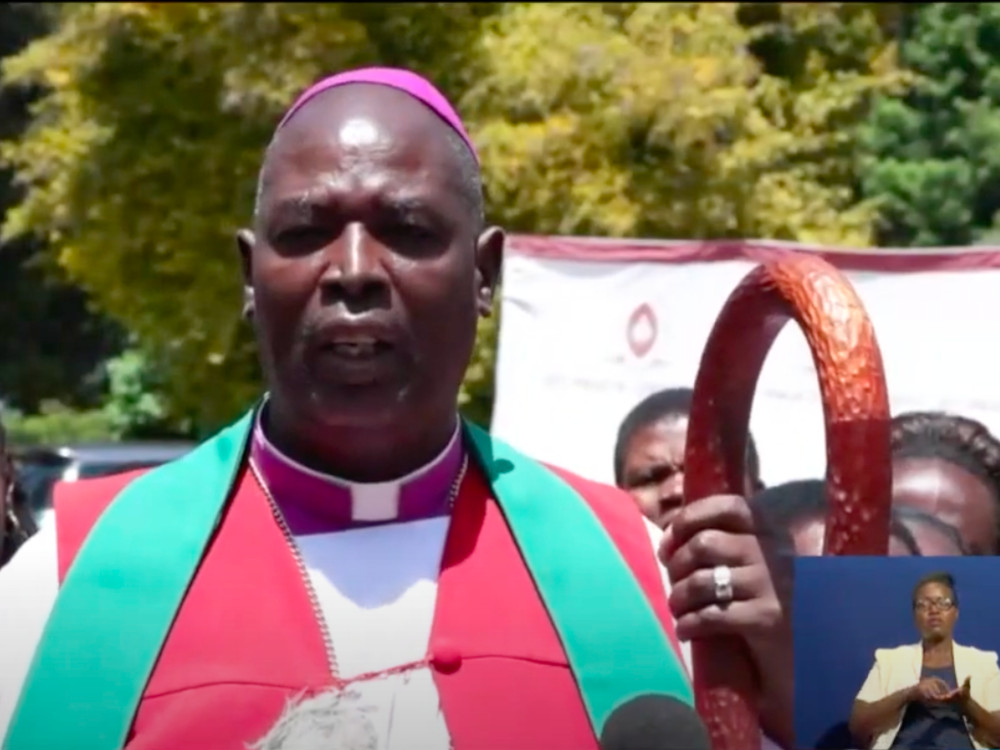Kenya’s Anglican Archbishop Jackson Ole Sapit says that President Trumps shutting down USAID (United State’s Agency for International development) is a wake up call for Africa, and it is time for the continent to manage its own resources and feed itself.
“We can grow food and we can satisfy ourselves if we have the right programmes,” Ole Sapit told an audience at St. Paul’s University Limaru, KBC Channel One reported. “So I think [the] Trump disruption of the rest of the world must be a wake up call for us to be able to think. Every other economy grew, not in easy times, but when you are faced by a crisis, they think deeper. And I hope we can think deeper now, and partially thank him for the disruption. Let us be disrupted so that we think properly and manage our resources properly. I think the other big problem to our development agenda is greed, and particularly to us leaders, when we take it away from people.”
The Living Church also reported Ole Sapit’s statement. “‘USAID projects have been shut down,’”’ he said. ‘People have lost jobs. But deficiency in leadership is our main problem. Let that money go so that we know how to save the little we have. Because most of it is stolen before it reaches where it is supposed to go.’”
Ole Sapit was critical of shutting down USAID suddenly. “Still, Ole Sapit called on President Trump to stagger the transition to avoid immediate shocks. ‘It should have been done gradually, especially for critical areas like health, until we have the capacity to support ourselves,’he said.”
Preaching on Joel 1:15-20, which describes a famine in Israel, Ole Sapit recently applied the message to Kenya. [Source https://www.facebook.com/ArchbishopOleSapit Feb 11, 2025] “The prophet Joel looks at his land and sees destruction. The fields are barren, the granaries empty, the cattle groaning, and even the trees scorched. His lament is deep—not just for the people, but for all creation.
“Joel sees something that many miss: when nature suffers, so do we. The famine, the drought, and the devastation of the land were not just economic hardships—they were spiritual wake-up calls. The land was speaking. Was anyone listening? …
He asked “1. Are you taking from creation without giving back? The famine in Joel’s time was a warning. Are we ignoring the warnings today?
2. When was the last time you truly cried out to God—not just for personal needs, but for the healing of the land?
3. What practical step can you take today to restore what is broken? Maybe it’s planting a tree, conserving water, mentoring a young person about stewardship, or speaking up for creation care.
“Like Joel, we must cry out to the Lord. Like [a local activist] Wangari Maathai, we must get our hands dirty. Faith and action must go together.
“Prayer: O Lord, when the land cries out, may we listen. When the rivers dry, when the forests burn, when the earth groans under the weight of our neglect, may we not turn away. Teach us to be true stewards—those who pray and act, those who restore and heal. May we not wait for someone else to save the world You entrusted to us. May we be the ones to plant, to protect, and to nurture. In Jesus’ Name, Amen.”
Archbishop Ole Sapit leads the Anglican Church of Kenya which clains 5 million adherents, and is a member of the Gafcon Primates (heads of churches) Council.
Image: Archbishop Jackson Ole Sapit press conference, Feb 6 at St Paul’s University. Image Credit KBC, screenshot

